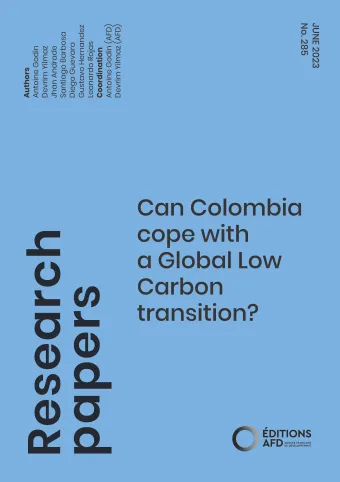Share the page
Can Colombia cope with a Global Low Carbon transition?
Published on

This paper aims to understand the long-term consequences for the Colombian economy of a global low-carbon transition. The paper proposes an empirical Stock-Flow Consistent model for Colombia, encompassing relevant dynamics for the economy: details regarding the trade balance such as fossil fuel exports or propensities to import out of consumption, intermediate goods or capital goods, dependency to international financial flows to cover a trade balance deficit, and more generally financial feedback loops for all institutional sectors. We envisage different scenarios regarding fossil fuel exports and show the dramatic impacts that Colombia could face in the case of a rapid decline in such exports. We then consider policy responses consisting in industrial policies to diversify the export base and show they can help mitigate the Colombian vulnerabilities but only after a certain period of time indicating the urgency of implementing such policies in Colombia.
Useful Information
-
Authors
-
Devrim YILMAZ, Jhan ANDRADE, Santiago BARBOSA, Diego GUEVARA, Gustavo HERNANDEZ, Leonardo ROJAS, Antoine GODIN
-
Coordinators
-
Devrim YILMAZ, Antoine GODIN
-
Edition
-
285
-
Number of pages
-
60
-
ISSN
-
2492 - 2846
-
Collection
-
Research Papers
